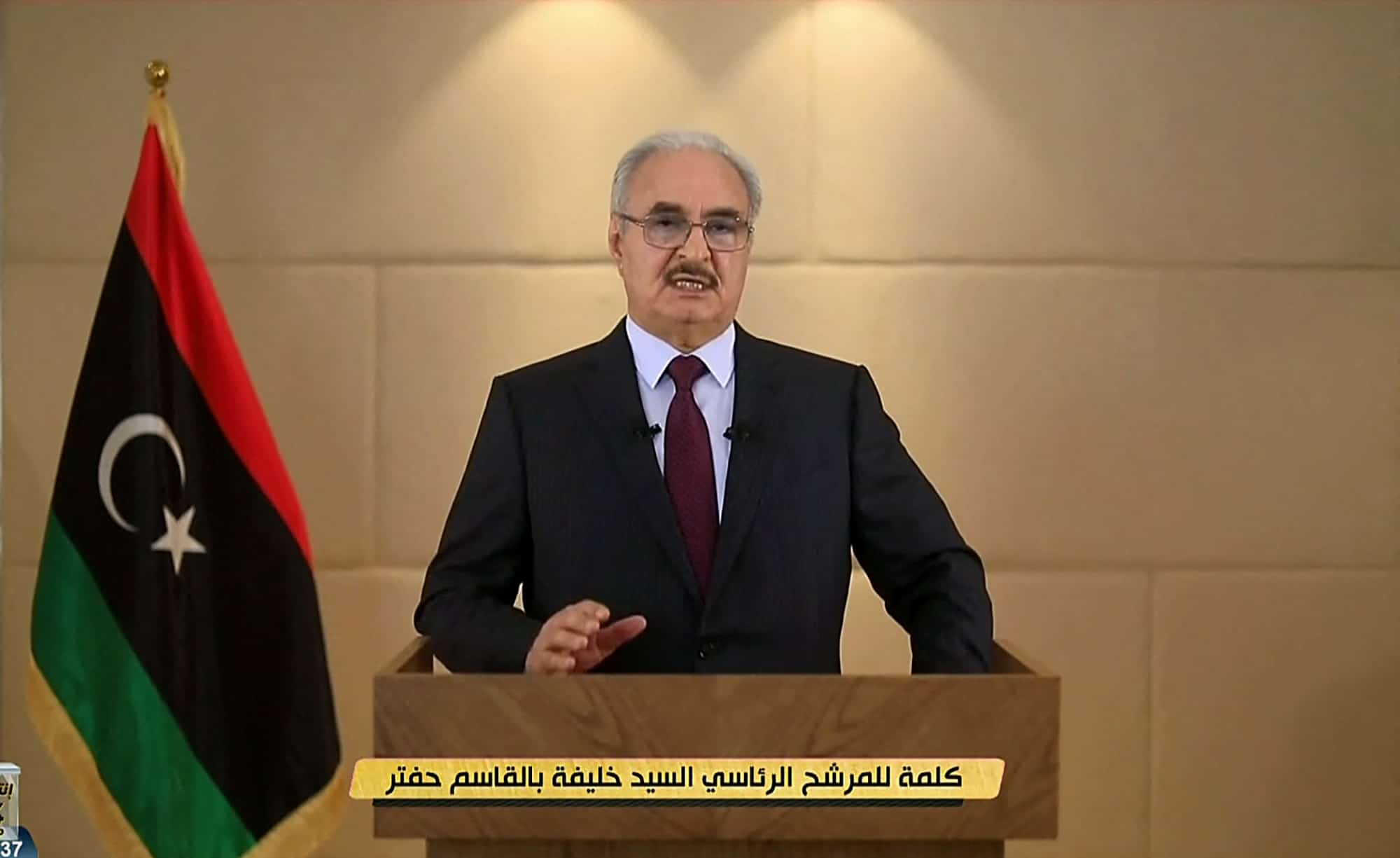The strongman in the east of war-scarred Libya, Khalifa Haftar, says he will run for president in a December 24 election that is also set to be contested by a son of former dictator Moamer Kadhafi.
“I declare my candidacy for the presidential election, not because I am chasing power but because I want to lead our people towards glory, progress and prosperity,” he said in a speech, broadcast live on Libyan television.
His announcement comes two days after the candidacy of Seif al-Islam Kadhafi — the son of slain dictator Moamer Kadhafi — who has been accused of war crimes by the International Criminal Court (ICC).
Backed by Russia, Egypt and the United Arab Emirates, Haftar is a controversial figure, despised by many in western Libya.
In April 2019, his self-styled Libyan National Army (LNA) launched a year-long offensive on the capital Tripoli under the pretext of rooting out militant groups.
He has also been accused of seeking to establish a military dictatorship in the country.
In his speech Tuesday, Haftar affirmed that the December election is “the only way to pull Libya out of chaos”.
On September 22, he provisionally retired from his role as head of the LNA in line with electoral law to allow him to run for president.
Last week, his forces said 300 mercenaries fighting on his side would leave Libya at the request of France in a “unilateral gesture”, expecting nothing in return from the government in Tripoli.
Following his announcement, he is expected to head to the electoral authority to formalize his candidacy.
Next month’s election is seen by the international community as a key step in restoring stability to Libya after a decade of conflict since the overthrow of Kadhafi in a NATO-backed uprising.

